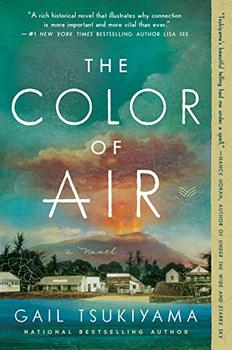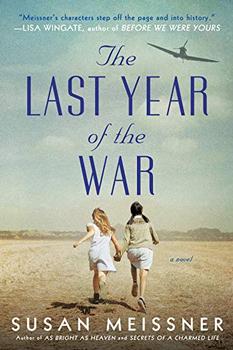Summary | Excerpt | Reading Guide | Reviews | Beyond the book | Read-Alikes | Genres & Themes | Author Bio

Alan Brennert's latest novel, Daughter of Moloka'i, follows the life of Ruth, a hapa – someone who is half-Japanese and half-Hawaiian - from her placement in a Honolulu orphanage at age three, her eventual adoption by a Japanese family, her relocation to America, and finally to her life as a happily married woman with adult children of her own.
The author uses Ruth's experiences to explore a number of important cultural and political topics. Her mixed heritage and the fact that she's female and not a more-favored male impact her ability to get adopted. Later, her family must endure the incredibly discriminatory anti-immigration laws the United States enacted against those of Asian heritage in the early 20th century (which inevitably causes one to ponder the country's current immigration policies).
The largest section of the novel addresses the suffering of Japanese citizens and others of Japanese ancestry in the US during WWII, as Ruth and her family become part of the 117,000 individuals that are sent to relocation camps. There have been many fine books over the past few years that explore this dark era of American history and I admit I wondered, at first, what else could be learned about these experiences that I hadn't encountered before. I was surprised therefore at how fresh Brennert's novel felt in spite of covering well-known issues. His inclusion of many small details about life in the camps painted a more nuanced picture than any account I've read to date. They added to my understanding of the family's plight, such as how their accommodations were former horse stalls, and although they'd been painted, they still stank of manure, or the fact that the former stable walls didn't reach to the ceiling, creating an atmosphere where one could hear every aspect of their neighbor's lives. Such intimate minutia inspired an empathy and compassion in me that felt new.
Perhaps the highlight of this excellent novel is the depth with which the book's protagonist, Ruth, is drawn. She comes across as a perfect balance of a traditionally dutiful Japanese daughter and a modern American woman of the 1940s – a complex, three-dimensional character. I was particularly impressed with the way Brennert portrayed the anger she felt about the way she and her family were treated, and that as she aged, she was quite (justifiably) bitter about her family's confinement and seemed to even experience a bit of lingering PTSD decades after returning home. It's a difficult balance act for a writer to achieve, and Brennert handles it beautifully.
Ruth's birth mother, Rachel Kalama (the subject of Brennert's earlier work, Moloka'i), reconnects with Ruth in the last section of the book. Part of me was happy to have the bridge between the two novels, but I also found this part less interesting. The interaction between all parties concerned (Ruth, Rachel, Ruth's adopted mother, her husband and her children) seemed far too easy to me. Basically, the book became too sunny toward the end for my tastes, which I felt put the latter chapters out of step with events that came before.
Regardless, Daughter of Moloka'i is a heartfelt novel that is sure to please Brennert's fans and win him many new ones. While not really breaking new ground, the characters are so well-crafted that the book is eminently entertaining. I highly recommend it to book groups and to anyone wishing for a look at another version of the Japanese-American experience in World War II.
![]() This review was originally published in The BookBrowse Review in April 2019, and has been updated for the
January 2020 edition.
Click here to go to this issue.
This review was originally published in The BookBrowse Review in April 2019, and has been updated for the
January 2020 edition.
Click here to go to this issue.

If you liked Daughter of Moloka'i, try these:

by Gail Tsukiyama
Published 2021
From the New York Times bestselling author of Women of the Silk and The Samurai's Garden comes a gorgeous and evocative historical novel about a Japanese-American family set against the backdrop of Hawai'i's sugar plantations.

by Susan Meissner
Published 2020
From the acclaimed author of Secrets of a Charmed Life and As Bright as Heaven comes a novel about a German American teenager whose life changes forever when her immigrant family is sent to an internment camp during World War II.
Your guide toexceptional books
BookBrowse seeks out and recommends the best in contemporary fiction and nonfiction—books that not only engage and entertain but also deepen our understanding of ourselves and the world around us.